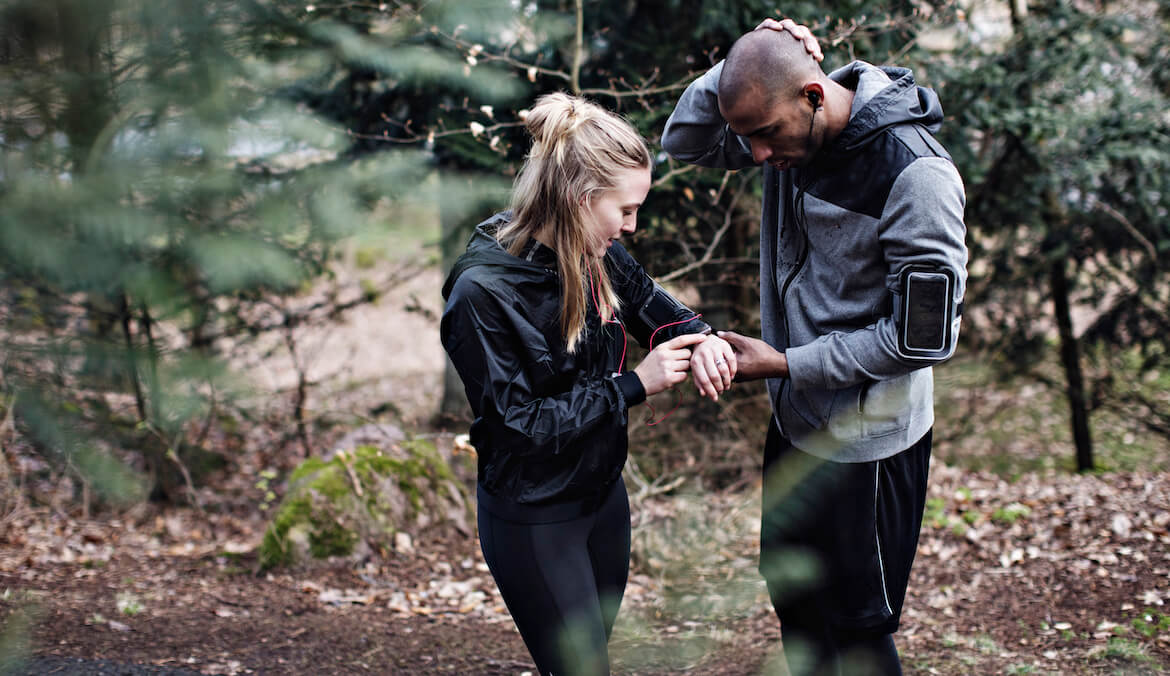

If you use a fitness tracker—especially if you’ve upgraded to a newer one recently—you’ve probably noticed the latest “it” performance metric: heart rate variability, or HRV. There’s a lot of buzz around HRV, and for good reason: it’s a useful measure of how well your body is handling stress, both mental and physical.
Used properly, your HRV score can help you plan your training and recovery more effectively, and understand how your emotional state affects your body. But you’ll only unlock those benefits if you actually know how to interpret the numbers.
First thing’s first: What is HRV, anyway?
Simply put, HRV measures the changes in time intervals between heartbeats, rather than the number of beats per minute, explains Justin Roethlingshoefer, an exercise physiologist and founder of Own It, a company that interprets fitness tracking data for athletes. “HRV is the language in which our body is communicating to us how it’s adapting to stress and strain,” he says.
We tend to think of our hearts like clocks, ticking at regular intervals. But in reality, the amount of time between heartbeats can vary quite a bit, and that variation tells us a lot about our autonomic nervous system (ANS). The ANS has two parts: the parasympathetic nervous system (PNS), and the sympathetic nervous system (SNS). The PNS is responsible for stimulating “rest and digest” functions within our body, whereas the SNS drives our “fight or flight,” or stress response. HRV offers clues about which of these systems is predominating in our body.
Related Stories
“When HRV is higher, your heart is only really beating when it has to. That means you’re in a very parasympathetic state, relaxed,” says Roethlingshoefer. When some kind of stress enters the picture, the heart starts to beat more quickly and regularly in response, which means your HRV will be lower.
Contrary to what you might think, stress isn’t inherently bad. Exercise, for example, is a form of stress. “There are stressors, and there are adaptations. We need a certain amount of stress in order to increase our capacity, otherwise we’re not going to be able to perform,” says Roethlingshoefer.
What to look for when tracking your HRV
So you got a new fitness tracker that measures HRV. How can you interpret those numbers?
The most important thing, says Roethlingshoefer, is to understand that numbers aren’t “good” or “bad,” and they can vary quite a bit from one person to another. Take at least a week to get a sense of your personal baseline. Second, don’t check your HRV score multiple times throughout the day. It’s normal for it to fluctuate, so pick a regular time—for example, first thing in the morning—and stick with that. The more data you collect over time, the more useful your insights will become.
Once you know where your score typically falls, you can use HRV to guide your workouts. “Say my average HRV is 105. If I pushed really hard yesterday and wake up today and see that my HRV is 52, then today I know I need to focus on recovery: hydration, maybe some soft tissue release, and meditation. Then I might wake up the next day with an HRV of 107,” says Roethlingshoefer. On the flip side, if your HRV is always high, you know you need to push yourself a bit harder.
And remember, exercise isn’t the only form of stress we encounter in our lives. “Your body doesn’t know the difference between physical stress and mental, emotional, or spiritual stress,” says Roethlingshoefer. A really challenging workout could lead to a drop in HRV the next day, but so could a difficult event in your personal life—anything from the loss of a loved one, to a fight with a romantic partner, to making a tough decision at work. Make sure you give yourself the same level of care after these events as you would after a hard workout.
Oh hi! You look like someone who loves free workouts, discounts for cutting-edge wellness brands, and exclusive Well+Good content. Sign up for Well+, our online community of wellness insiders, and unlock your rewards instantly.
